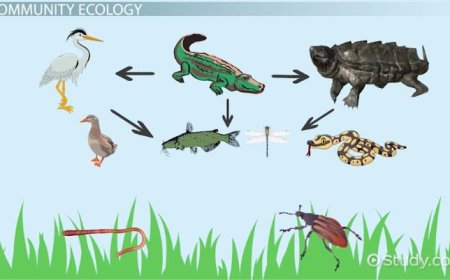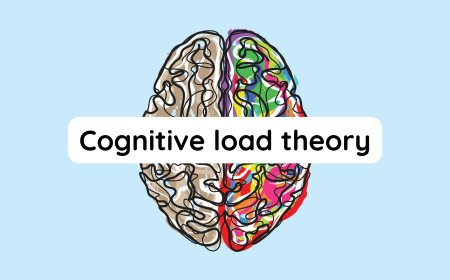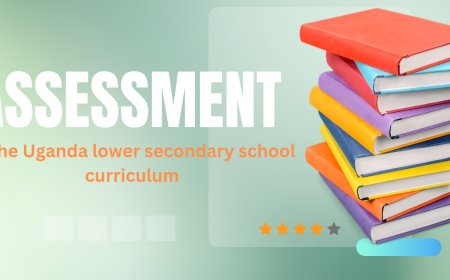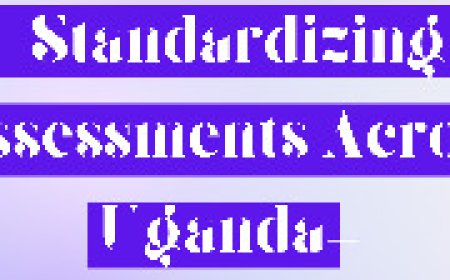Learning from Swedens Emphasis on Sustainable Development in Education
Sweden places strong importance on sustainable development in education by embedding environmental, social, and economic dimensions throughout all levels of learning—from early childhood to university. The goal is to prepare students with the knowledge, skills, and values they need to engage responsibly and effectively in building a more sustainable future. Some of the key elements of this approach include:

Learning from Sweden's Emphasis on Sustainable Development in Education refers to the nation's innovative approach to integrating Education for Sustainable De- velopment (ESD) into its educational framework, which has garnered international attention as a model for fostering environmental consciousness among students.
Established as a key priority following the United Nations' "Decade of Education for Sustainable Development" (2005-2014), Sweden's educational reforms have positioned sustainability as a fundamental pillar within its national curriculum, em- powering students to engage actively with pressing global issues such as climate change and social equity.[1][2].
Sweden's educational strategy uniquely intertwines sustainable development across all levels of education, from early childhood through higher education, reflecting a holistic perspective that recognizes the interconnectedness of environmental, social, and economic dimensions. This comprehensive framework promotes transformative learning practices that encourage students to see themselves as active agents
of change in their communities, fostering a sense of responsibility and agency in addressing sustainability challenges.[3][4]. The eco-school program, managed by the Keep Sweden Tidy Foundation, exemplifies practical applications of ESD, although the absence of a cohesive national evaluation strategy raises questions about the overall impact and effectiveness of such initiatives.[5][6].
Despite its notable advancements, Sweden's approach to ESD faces challenges and critiques, particularly regarding the portrayal of sustainability issues in educational contexts. Concerns have been raised that an overemphasis on negative narratives may lead to student disengagement, with calls for a more balanced presentation that highlights opportunities for positive change.[7][8]. Furthermore, the current curricu- lum structure often positions ESD as a guiding principle rather than a core subject, resulting in variable implementation across educational levels and among educators, which can limit the potential for impactful learning experiences.[9][4].
Overall, Sweden's emphasis on sustainable development in education serves as a significant case study for other nations seeking to incorporate sustainability into their educational practices. By examining both the successes and challenges of
Sweden's model, educators and policymakers worldwide can glean valuable insights into fostering a generation of environmentally conscious and socially responsible individuals capable of contributing to a sustainable future.[1][10].
Historical Context
Education for Sustainable Development (ESD) has become a focal point in global education strategies, significantly influencing pedagogical approaches in Sweden.
The United Nations designated the decade from 2005 to 2014 as the "Decade of Education for Sustainable Development," with UNESCO leading initiatives to
integrate sustainability into educational systems worldwide[1]. This period marked a shift in educational paradigms, prompting educators at all levels to incorporate environmental issues into their curricula.
In Sweden, the implementation of ESD is closely linked to national educational reforms and the establishment of the eco-school certification program, managed by the Keep Sweden Tidy Foundation. This program supports schools in adopting sus- tainable practices and enhancing their environmental education efforts[5]. Despite some small-scale studies examining the outcomes of eco-school initiatives, such as the investigations conducted by Manni et al. (2013) and Stagell et al. (2014), a comprehensive national evaluation strategy assessing the overall impact of these certifications is still lacking[5].
The integration of ESD within Swedish education is reflected in the national cur- riculum, which came into effect in 2011. This curriculum introduced new goals, guidelines, and syllabuses emphasizing sustainable development as a fundamental aspect of education[11]. Furthermore, comparisons with other countries, such as Japan, reveal that while ESD is recognized in both nations' curriculums, Sweden tends to frame it as a guiding principle rather than an obligatory part of specific subject syllabi[9]. This distinction highlights the contextual and cultural nuances that shape the implementation of sustainable development education across different educational systems.
Moreover, Sweden's commitment to fostering sustainability consciousness among students has been reinforced through various research initiatives aimed at under- standing and enhancing student attitudes and behaviors related to sustainability[5][9-
![]() ]. As a result, ESD continues to evolve in Sweden, driven by both national educational policies and international trends aimed at preparing future generations to tackle the challenges of sustainability effectively.
]. As a result, ESD continues to evolve in Sweden, driven by both national educational policies and international trends aimed at preparing future generations to tackle the challenges of sustainability effectively.
Principles of Sweden's Educational Approach
Sweden's educational system places a strong emphasis on integrating sustainable development into its curricula across all levels, reflecting a commitment to envi- ronmental, social, and economic sustainability. This approach aligns with global frameworks, including the United Nations 2030 Agenda for Sustainable Develop- ment, which underscores the importance of quality education as a cornerstone for sustainable societies[2].
Curriculum Framework
The national curriculum in Sweden explicitly addresses sustainability, with clear objectives related to environmental, social, and economic dimensions[3]. It recog- nizes children as "competent beings" and "active agents," empowering them to engage with sustainability issues. Transformative learning practices are encouraged, fostering changes in how children think, act, and learn in relation to sustainable development[3][2].
Interdisciplinary Integration
Sustainable development concepts are embedded across various subjects within the curriculum. This interdisciplinary approach allows students to understand the inter-
Educational Practices
Teachers play a crucial role in implementing sustainability education. They are encouraged to adopt a solution-oriented approach that links environmental issues to students' daily lives, thereby making the challenges of sustainability more tangible and relatable[12]. For instance, educators may engage students in practical activities that illustrate the impact of waste on the environment, fostering a sense of individual responsibility towards sustainability[12][7].
Focus on Participation and Agency
Sweden's educational philosophy advocates for the participation of students in sus- tainability discussions, emphasizing their agency in driving change. This participatory approach aligns with the broader goals of democratic education and child rights, en- suring that students feel valued and capable of contributing to societal solutions[3][2].
Implementation Across Educational Levels
The integration of Education for Sustainable Development (ESD) within Sweden's educational framework emphasizes the need for a holistic and interconnected ap- proach across all educational levels. This strategy aims to equip students with the skills, knowledge, and attitudes necessary to navigate and contribute to a sustainable future in a complex society[10][4].
Early Childhood Education
In early childhood education, the curriculum is designed to reflect children's agency, encouraging young learners to engage with sustainability concepts through practical activities that combine scientific and non-scientific knowledge. This community-based orientation fosters a value-oriented approach, enabling children to become change agents within their local contexts[13][12]. As children interact with their environ- ment—whether in natural or urban settings—they gain hands-on experience that supports their understanding of sustainability[14].
Higher Education
In higher education, the approach to sustainability education reflects a need for both bottom-up and top-down strategies. While grassroots initiatives driven by students can foster a pluralistic perspective, institutional policies and frameworks also play a significant role in shaping the effectiveness of ESD. The implementation of sustain- ability curricula has been shown to transform teaching and learning environments, promoting the development of skills and values that support sustainable societies[4]-
Through these integrated efforts across all levels of education, Sweden aims to create a cohesive system that nurtures a generation equipped to face the challenges of sustainability and contribute positively to their communities.
Primary and Secondary Education
At the primary and secondary levels, the implementation of ESD is rooted in
To enhance ESD implementation, recommendations have been made for profes- sional development for educators, ensuring they are equipped to teach sustainability effectively across various subjects. This includes workshops for parents to clarify the philosophy of ESD, curriculum audits, and the establishment of working groups focused on transformative learning theories[4][15]. Such measures are essential to create an educational environment that extends beyond academic success, aim- ing to develop students' intellectual, cultural, and social capital to explore diverse post-school opportunities[15].
Case Studies
Eco-Schools in Sweden
Many schools in Sweden participate in the eco-school program, which is designed to implement Education for Sustainable Development (ESD). The program is admin- istered by the Keep Sweden Tidy Foundation, which offers initiatives aligned with the Swedish educational framework[5]. Small-scale studies have been conducted to investigate the outcomes of eco-school programs at both student and teacher levels. However, there is a notable lack of a national evaluation strategy to assess the impact of these certifications and their effectiveness in fostering sustainable practices among students[6].
Student Perspectives on ESD
Research conducted at the University of Ioannina in Greece explored the views of students from the Department of Early Childhood Education regarding sustainable development issues and their attitudes towards ESD. The findings indicated that while students possessed a solid understanding of environmental education, their
Practical Applications in Early Childhood Education
Lustträdgården's preschool, located in Ljungskile, Western Sweden, exemplifies the integration of sustainable practices in early childhood education. This independent preschool focuses on child-initiated learning methods, emphasizing permaculture and cultivation in their garden. The pedagogical approach draws inspiration from the Reggio Emilia philosophy, fostering creativity and ecological awareness among children[16]. This case illustrates how local contexts can be leveraged to develop sustainability-related attitudes and behaviors in young learners, demonstrating the potential of place-based education in ECE[13].
Citizenship Education in Social Studies
In the context of Swedish education, there are significant findings related to the depth of citizenship units within the social studies curriculum. Reports indicate that these units lack comprehensive engagement with sustainable development themes and action-based outcomes[4]. The need for enhanced professional development for educators to effectively incorporate ESD into their teaching has been highlighted as a critical area for improvement, suggesting that a common understanding of ESD among staff is still evolving[4].
Challenges and Critiques
The implementation of Education for Sustainable Development (ESD) in Sweden faces various challenges and critiques that impact its effectiveness and scope. A sig- nificant concern is the way sustainable development is portrayed within educational settings. Many teachers express apprehension that an emphasis on negative aspects of sustainability, such as environmental degradation and climate change, can lead to student apathy and resignation. This perspective suggests that fear-based narratives do not foster engagement but rather discourage students by painting a dismal picture of the future. Teachers highlight the necessity of presenting sustainability as an opportunity for positive change, rather than a burden to bear[7].
Moreover, critiques point out that the educational discourse surrounding ESD often reduces complex environmental issues to simplistic solutions, such as recycling and energy conservation. This "solution-oriented" approach may trivialize the underlying causes of environmental problems and detracts from a more comprehensive under- standing of systemic issues that require political and social engagement. As a result, curricula frequently reflect a narrow focus that neglects broader contextual factors that contribute to sustainability challenges[9].
Furthermore, while ESD is integrated into the national curriculum, its emphasis varies significantly between countries. In Sweden, ESD is often framed as part of guiding principles rather than a core subject, which can lead to a lack of coherent implemen
This discourse creates a dichotomy in which certain perspectives on the "environ- mentally aware citizen" are promoted while others are marginalized. The challenge lies in addressing both the ethical and societal aspects of sustainability education while avoiding a narrow interpretation that excludes critical engagement with pre- vailing socio-economic systems[8]. The current curricula and policies do not provide clear directives for fostering these broader discussions, limiting the potential for transformative learning experiences that can drive meaningful change in students' attitudes toward sustainability[9][8].
Impact and Outcomes
Influence on Student Consciousness
The implementation of education for sustainable development (ESD) in Sweden has significantly influenced students' sustainability consciousness. A qualitative case study has shown that while students' understanding predominantly reflects an environmental perspective, their motivation to act is strongest in the economic dimension[4]. This suggests a disconnect between the awareness of sustainability
Teacher Preparedness and Curriculum Integration
Recent assessments have identified critical gaps in the ability of educators to effectively integrate ESD into the curriculum. There exists a notable challenge in articulating a common understanding of ESD among school staff, indicating a need for extensive professional development to bolster teachers' confidence in addressing sustainability topics[4][9]. The lack of emphasis on values, attitudes, and behaviors related to sustainability in curriculum standards has been highlighted, alongside a tendency for subject importance in secondary education to correlate directly with examinable status[9].
Variability in Student Engagement
A synthesis of studies across 18 countries has revealed that ESD contributes posi- tively to quality education but also points out the variability in student knowledge and engagement with sustainability topics. This variability is particularly pronounced in secondary education, where ESD implementation can be inconsistent[9]. In Sweden, significant differences have been observed in students' values regarding sustainable development based on factors such as gender and the type of educational program
Fostering Solidarity and Shared Responsibility
The promotion of values such as solidarity and shared responsibility has been a focal point in the education for sustainable development framework. Research has shown a positive correlation between these values and pro-environmental behaviors among students[1][17]. This highlights the potential of ESD to cultivate a sense
Future Directions
As the landscape of education for sustainable development continues to evolve, there is a pressing need for comprehensive strategies that encompass all subjects and integrate sustainability throughout the educational framework. This includes fostering an interdisciplinary approach and providing adequate professional development for educators[9][10]. By addressing these challenges, the potential for ESD to signif- icantly impact students' attitudes, knowledge, and behaviors towards sustainable practices can be enhanced, ultimately contributing to a more sustainable society.
References
[1] : Attitudes to sustainable development among Swedish pupils - Academia.edu
[2] : Eco-Schools in Sweden and the Effects on Students’ Sustainability ...
[3] : The Swedish school system | sweden.se
[4] : The implementation of education for sustainable development in Sweden ...
[5] : Fact sheet: Education for sustainable development
[6] : Preschool children’s agency in education for sustainability: The case ...
[7] : Making the Unsustainable Sustainable: How Swedish Secondary School ...
[8] : Programme in Early Childhood Education - Stockholm University
[9] : Education for sustainable development - Naturskyddsföreningen [10]: Student sustainability consciousness: Investigating effects of ...
[11] : Early Childhood Education for Sustainability - Children & Nature Network
[12] : Outdoor and Sustainability Education, Master's Programme
[13] : Evaluation of integration of sustainable development in higher ...
[14] : The Effectiveness of Education for Sustainable Development - DiVA portal
[15] : Education for sustainable development in preschool
[16] : Sweden - Sustainable Development Knowledge Platform
[17] : Education for Sustainable Development, Master's Programme
: Barnfonden joins forces to tackle environmental degradation and climate ...










































